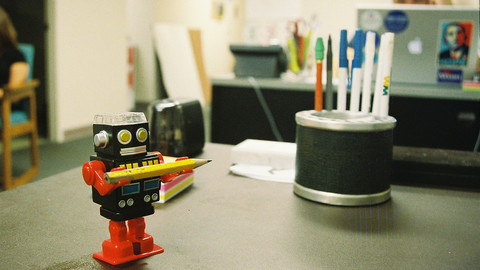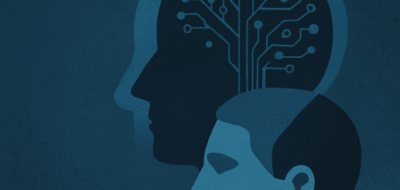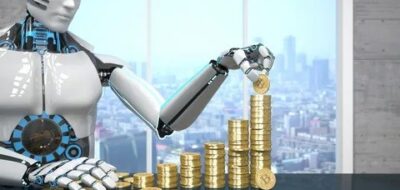My article in BUSINESS INSIDER published 1stof May 2018.
I’ve already written on my blog about the popular myths about Artificial Intelligence. One of the most widespread concerns is the issue of labor markets. According to the popular thesis, they are awaited by shock and even by gradual erosion. Regardless of whether we are waiting for rapid or evolutionary changes, the behavior of the current status quo seems difficult. Corporations may benefit from the development of technology, but not employees, say the pessimists. Robotics for industry and services mean, in their opinion, mass dismissals and the liquidation of many positions. I think that in fact we must all prepare for change, but I want to show in this text that they do not have to be so unambiguously negative. And even the opposite: Artificial Intelligence will generate a lot of new jobs, influence the creation of new positions and professional roles. New skills will also be valued.
The works will be taxed
Reading the publications about how the automation and robotization can affect the job market, I came across the suggestive vision of journalist Ben Tarnoff presented in The Guardian. I was interested in the text, because although the author does not hide any unrest, he does not stop at pessimistic simplifications. It also looks for possible and even necessary solutions that can mitigate the negative effects of robotization. In the article “Robots will not even take our jobs – they’ll make the rich even richer”, the author claims that the new technology can bring many benefits to the development of societies, but also carry a threat. Without regulations introduced by politicians and economists, apocalyptic visions can become a fact in ten years – says Tarnoff. But here comes the important reflection of the journalist on the issue of regulation. Critics of modern technological processes forget that no changes, especially concerning a large labor market, can take place without legal or legislative mechanisms. The fact that the technological revolution needs legislative support is clear to me. The task of every regulation is to prevent negative processes that should be anticipated – regardless of whether we believe that they will occur or not.
The threat that Ben Tarnoff points out is to be social exclusion of many professional groups. As technology becomes more and more perfect and the share of labor costs in the process of capital formation is systematically reduced, corporations earn more and more. The average employee, however, does not become a beneficiary of this process. Increasing profits, which are the result of greater efficiency, go only to the pockets of investors, business owners and will not be reinvested in people, whether in the form of increased wages or additional training or development. The whole process can bring drastic consequences, including the “mass rebellion”. The rich would thus increasingly isolate themselves from the rest of society, live in luxurious, closed enclaves, and deprived of work, representatives of the lower and middle class reach for radical solutions, including the use of force. In this gloomy scenario, technology thus serves the privileged class and becomes a “political” quality. What could prevent these apocalyptic scenarios? According to the author of the article, it could be even a tax policy. Taxation of robots would allow for the generation of funds allowing for the reclassification of workers in difficulty or for guaranteed guaranteed income. Today’s EU politicians in France and Bill Gates are reaching such conclusions.
Not everyone has to worry
However, is there really something to worry about? The thesis that robotization can lead to the liquidation of many workplaces is not as obvious as it may seem. More and more studies that are conducted on this topic show the phenomenon from many perspectives and demolish popular beliefs. The numbers are not unambiguous. I have come across opinions that there is a 50 percent chance that devices that use the benefits of Artificial Intelligence will be able to perform ALL human activities over a period of 45 years, and that every workplace will be automated within 120 years. According to the Oxford expert professor Michael Osbourne specializing in machine learning, over the next 20 years, machines can replace about 47 percent of our jobs. In other words, man will have nothing to do. Today, however, analysts’ forecasts speak to me, according to which machines can eliminate about 6 percent of jobs in the next four years. This is not an alarming number, considering the benefits and opportunities that may arise. It is estimated that in the United States, automation will result in a loss of 9.1 million jobs by 2025. The estimated potential of jobs for automation in Japan is 55%, India 52%, China 51% and in the USA 46%. In my opinion, it is still not a lot.
In the considerations regarding the labor market, a broader perspective is important, which takes into account such factors as: the nature of the work performed, the type of positions and the education of employees. The fact that this is all important is evidenced by, for example, the development of the McKinsey Global Institute. Looking at the data below, you can quickly see that the potentially negative effects of robotization and automation can affect specific groups of employees. Therefore, drivers may worry about their future (it seems clear when we take into account the dynamic development of autonomous vehicle technology). Negative changes, on the other hand, will affect doctors, lawyers and teachers to a small extent. It can be summarized as follows: works in which interpersonal relations, creativity, and emotional intelligence are not at risk, and modern technology may even be a serious ally in the course of performing many professional activities.
Read more in the full article.
Link to the full article (in Polish)
Related articles:
– A machine will not hug you … but it may listen and offer advice
– Surviving in the digital age, future-proofing your business
– Fall of the hierarchy. Who really rules in your company?
– A hidden social networks lurks within your company. Find it!
– Your clients are already in the future, and where are you?










Zwierzak
Right. First millions are gonna loose current jobs